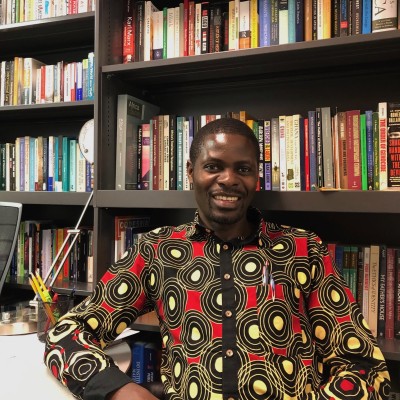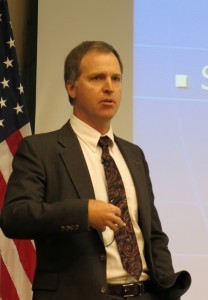Executive Board
Executive Board

Kyle Beardsley
Duke UniversityKyle Beardsley is Professor in the Department of Political Science at Duke University, Director of the Triangle Institute of Security Studies, and co-director of the International Crisis Behavior data project. His research focuses on the quantitative study of international conflict and peace processes. He is … Read more

William Boettcher
North Carolina State UniversityWilliam Boettcher is associate professor in the School of Public and International Affairs at North Carolina State University.

Peter D. Feaver
Duke UniversityPeter D. Feaver is a Professor of Political Science and Public Policy at Duke University. He is Director of the Duke Program in American Grand Strategy. Feaver is author of Armed Servants: Agency, Oversight, and Civil-Military Relations (Harvard Press, 2003) and of Guarding the Guardians: … Read more

Moses Khisa
North Carolina State UniversityMoses Khisa is an Assistant Professor of Political Science in the School of Public & International Affairs (with a joint appointment in Africana Studies) at North Carolina State University. He is a graduate of Makerere University, Kampala (BA & MA), and Northwestern University (MA & … Read more

Wayne E. Lee
University of North Carolina at Chapel HillWayne E. Lee is the Bruce W. Carney Distinguished Professor of History at the University of North Carolina at Chapel Hill.

John Mattingly
North Carolina State UniversityJohn Mattingly is a Professor of Nuclear Engineering and University Faculty Scholar with NC State University (NCSU). His research principally focuses on developing new radiation measurement and analysis methods for nuclear security applications, including nonproliferation, counterterrorism, emergency response, and forensics. John is the director of … Read more

Jennifer Siegel
Duke UniversityJennifer Siegel is the Bruce R. Kuniholm Distinguished Professor of History and Public Policy at the Sanford School of Public Policy at Duke University.

Patricia L. Sullivan
University of North Carolina at Chapel HillPatricia L. Sullivan is Associate Professor in the Department of Public Policy and the Curriculum in Peace, War, and Defense at the University of North Carolina at Chapel Hill. Dr. Sullivan’s research explores the utility of military force as a policy instrument; the effects of … Read more

Erinn Whitaker
University of North Carolina at Chapel HillErinn Whitaker, a former senior analyst for the US Intelligence Community, is a Professor of the Practice in the Curriculum of Peace, War and Defense (PWAD) at the University of North Carolina at Chapel Hill. With nearly 15 years of experience overseas and in Washington, … Read more
